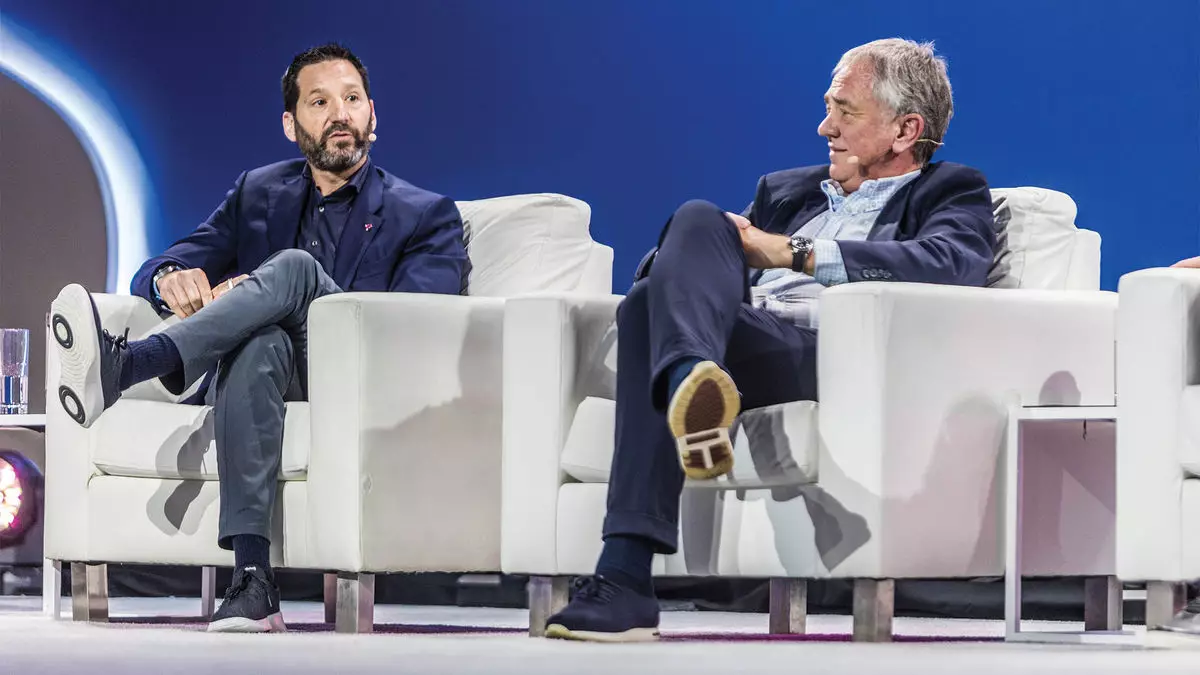The cruise industry stands at a critical juncture, grappling with consumer trepidation amid shifting economic landscapes. Prominent executives from various cruise lines recently convened at the Seatrade Cruise Global conference in Miami Beach, echoing a collective sentiment that while the industry remains robust, dips in consumer confidence are rippling through financial decisions regarding travel. The market’s recent volatility has thrown a wrench into what could have otherwise been a smooth sailing.
Norwegian Cruise Line Holdings CEO, Harry Sommer, acknowledged the impact of a plunging stock market on consumer sentiment. However, he maintained an optimistic outlook, suggesting that such transient market fluctuations would not derail long-term strategies. This assertion indicates a certain resilience within the industry, signaling that while immediate consumer behaviors may shift, the fundamental allure of cruising remains intact.
Consumer Behavior: A Cautious Approach
Amidst economic uncertainty, consumers are exhibiting a cautious approach to booking vacations, particularly cruises. Josh Weinstein, CEO of Carnival Corp., highlighted the hesitation among potential travelers, who now find themselves weighing the implications of market ebbs and flows. This behavioral shift can be attributed to uncertainty; consumers often exhibit a tendency to pause and reflect before committing substantial funds to leisure activities during unpredictable economic periods.
Many consumers are not outright canceling their bookings, but rather taking additional time to conduct research and evaluate their options. Ken Muskat, president at Scenic Group USA, pointed out that this “wait-and-see” mentality has emerged strongly, showcasing a recent slowdown in cruising bookings—yet he remained confident that this is merely a temporary phase. The underlying theme here suggests that consumers cherish their vacationing experiences, and the resilience of this desire is evident.
Optimism Amidst Volatility
Despite the sluggish pace of bookings, the executives at the conference expressed a firm belief that consumers would eventually adapt to newly entrenched economic realities. The optimism was palpable, with executives emphasizing the inherent value that cruising offers. Muskat reassured that experiential travel, like cruising, typically retains its appeal over material purchases.
In turbulent times such as these, many consumers often find themselves longing for adventure and respite, evidencing that the craving for experiential enrichment often outweighs financial apprehension. The allure of discovering new destinations, meeting diverse people, and enjoying curated experiences remains a potent draw that could help the cruise industry weather current economic storms.
Value Proposition: The Cruise Industry’s Edge
One prevailing argument from cruise executives is the undeniable value that cruising provides. Pierfrancesco Vago, executive chairman of MSC, highlighted how the comprehensive packages offered by cruises serve as a cost-effective choice for consumers. All-inclusive pricing models that cover accommodations, meals, entertainment, and excursions allow travelers to budget effectively — essential in uncertain economic environments.
During challenging financial times, consumers tend to gravitate toward services that deliver maximum value. Cruise lines are strategically positioned in this aspect, providing experiences that offer more bang for remaining bucks. As John Waggoner of Victory Cruise Lines aptly put it, the psychological impact of a declining market can lead individuals to embrace travel as a form of escape, reinforcing the long-held belief that the industry will bounce back.
Looking Ahead: The Cruise Industry’s Resilience
Even in the face of fiscal uncertainty, the overarching view among industry leaders is that cruising will come out stronger. The challenges posed by an erratic market may alter immediate consumer actions, but executives agree that historical trends show robust recovery in consumer confidence over time. As past economic downturns have shown, once individuals adjust to a new monetary climate, they are likely to return to previous spending habits.
Despite current hesitations, many cruise executives commentary projected a belief that the economic landscape would stabilize, fostering an environment conducive for leisure spending to resume. This forward-looking approach demonstrates that adaptability is ingrained within the industry’s culture.
Overall, the seamless blend of experiential growth, inherent value, and an ever-resilient spirit positions the cruise industry to navigate through and ultimately thrive beyond the turbulence of economic uncertainty. The call for patience, adaptability, and strategic navigation resonates deeply within industry circles, setting the stage for a hopeful future for those who yearn for adventure on the open seas.


Leave a Reply